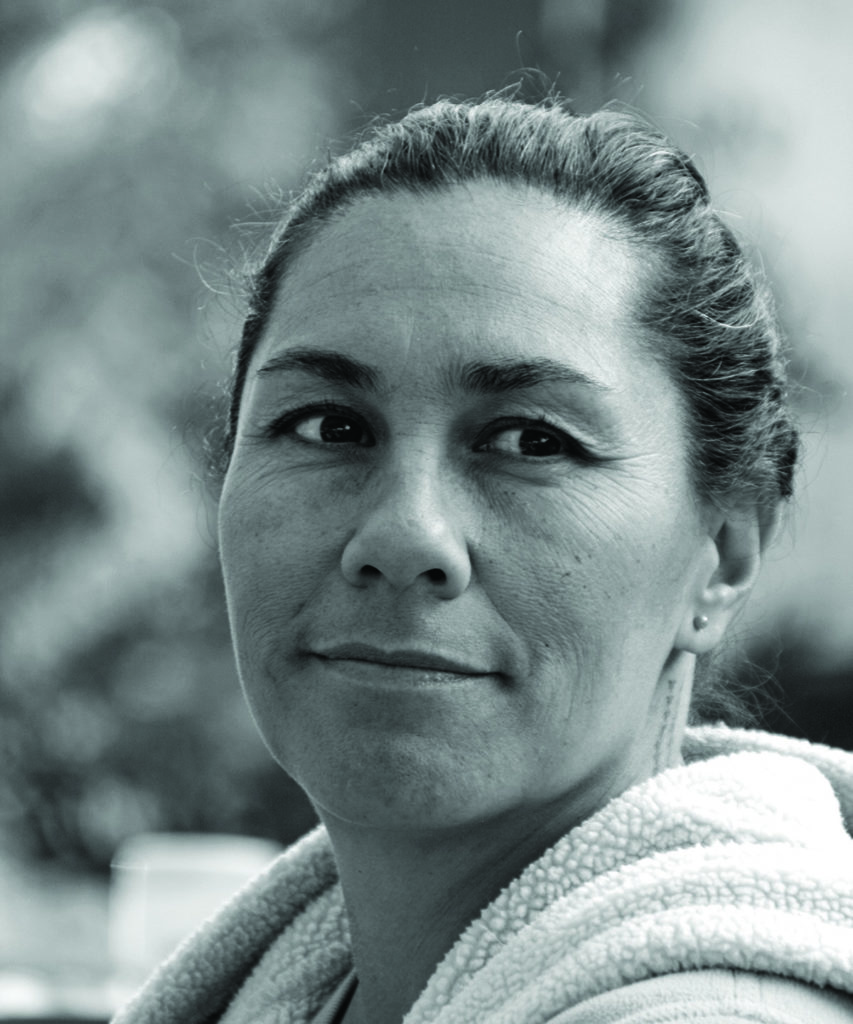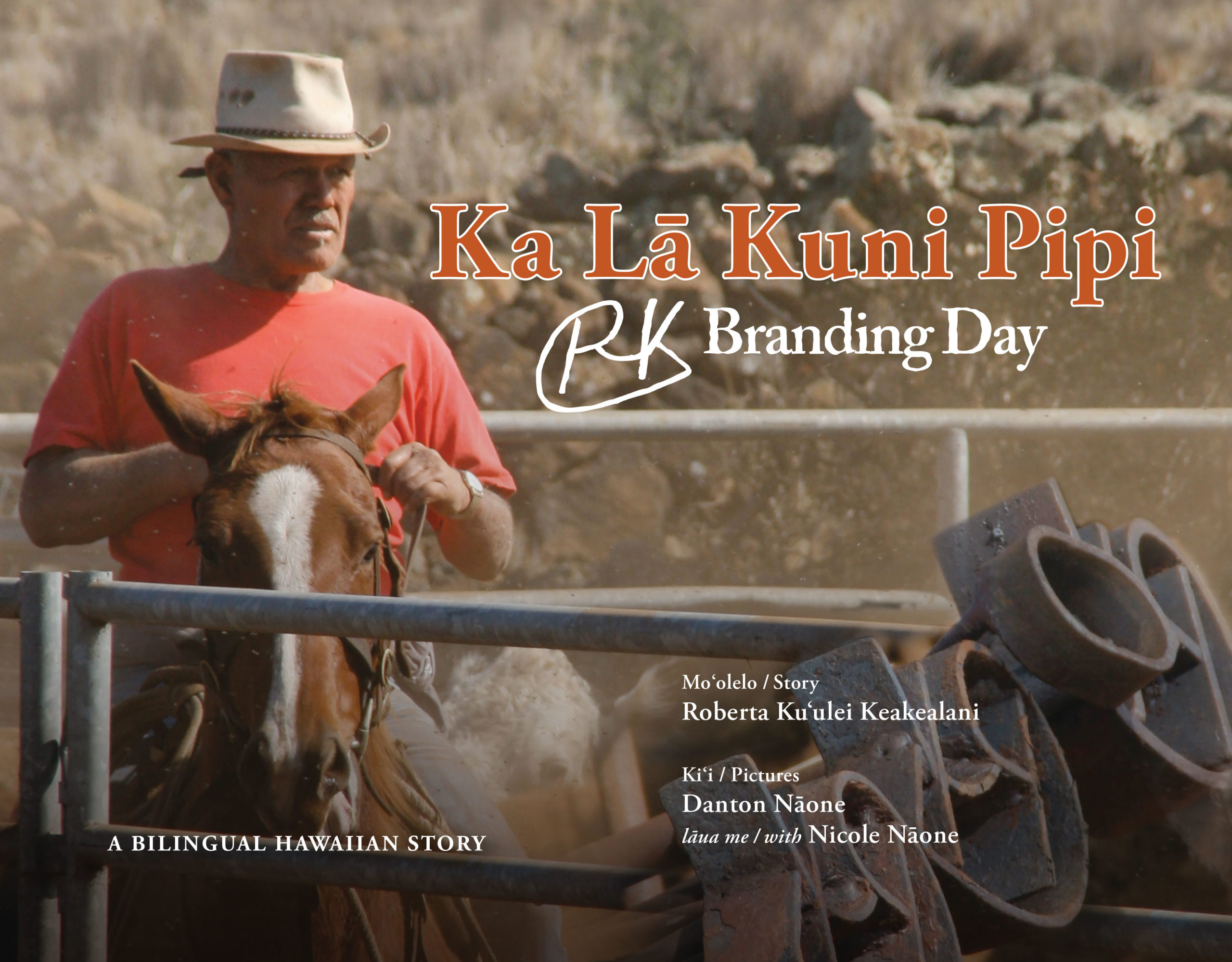Author Q & A with Roberta Kuʻulei Keakealani
No hea mai ʻoe? (Where are you from?)
Pu‘uanahulu, North Kona, is the homeland. However, we moved to Waimea when Dad became a paniolo with the Parker Ranch.
Why did you write RK Branding Day?
I wrote RK Branding Day as a tribute to the way I was raised, our lifestyle—the paniolo lifestyle, as well as to honor my grandfather, Robert Keakealani. He was the patriarch of our ‘ohana and for whom the RK brand stands for.
What is one thing you learned from creating your book?
I have learned many things from creating this book, but the one thing that stands out is the paniolo vocabulary or terminology. I learned new terms that I never knew before; kumulau is one such term.
What is your favorite book or moʻolelo?
One of my favorite books is Plant a Kiss by Amy Krouse Rosenthal. I however, can’t choose a favorite mo‘olelo. I am partial to the ones by J.W.H.I. Kihe of my homelands in Kekahawai‘ole, North Kona.
What would be your superpower?
My superpower would be to transcend time and space.
What ʻōlelo noʻeau do you most cherish or relate to and why?
E ‘ai i kekahi, e kāpī i kekahi. Eat some, salt some. This ‘ōlelo no‘eau resonates with me because it captures a mentality of living within one’s means and having enough, lawa pono. Sustainability perhaps would be the buzz word today, but this ‘ai i kekahi, eat some, means one has ‘ai (food) to eat, and e kāpī i kekahi means one has some to salt, to preserve, to save for a later time. It also speaks to me about wise choices. One could perhaps eat all they have or is provided, but it is by making a wise choice that one salts and saves some for later. Dad them would always tell us growing up, “Think about tomorrow too, not just today.” It is a way of being. Humility is also a value I glean from this ‘ōlelo no‘eau.
What do you like to do in your spare time?
I love to read and re-read mo‘olelo from Hawaiian-language newspapers or read through oral history interviews of my kūpuna. Equal to reading is to be with my horse Soul-jah.
What are a few of the kuleana you carry, and what do they mean to you?
I believe the kuleana I carry was pre-destined, koho ‘ia. It is to be a voice for ‘āina, a voice for kūpuna, a voice that would perhaps otherwise be silent or absent. To have walked alongside kūpuna on ‘āina aloha and had a chance to view it from their lens and hear from their hearts, I must carry and pass that forward. To have been in a home and an entire village, Pu‘uanahulu, where the native language was commonplace is another kuleana I believe was bestowed upon me. To quote kūpuna, to speak as they spoke, to live as they lived, to work hard, to not be lazy or idle are inherited responsibilities I have, I hold, and, in the light of kuleana, I must pass forward; ho‘omau, ensure succession.
If you could go back in time and meet one person from the past, who would it be?
If I could go back in time, I’d love to meet my ancestor Keakealaniwahine.
What moʻolelo still needs to be told?
Many mo‘olelo still need to be told, mo‘olelo where we (kānaka Hawai‘i) can see ourselves in these stories, ones we relate to and know these to be our mo‘olelo. Stories of identity and familiarity. Stories that elevate our ways, our food, our tendencies, and nuances, and celebrate our unique and beautiful selves.
One mo‘olelo of great interest to me would be exalting the knowledge held by paniolo of place names, names of winds, rains, hills, ahupua‘a, etc. The extent of their knowledge is wide and deep, and we must become the next repositories of this knowledge.


